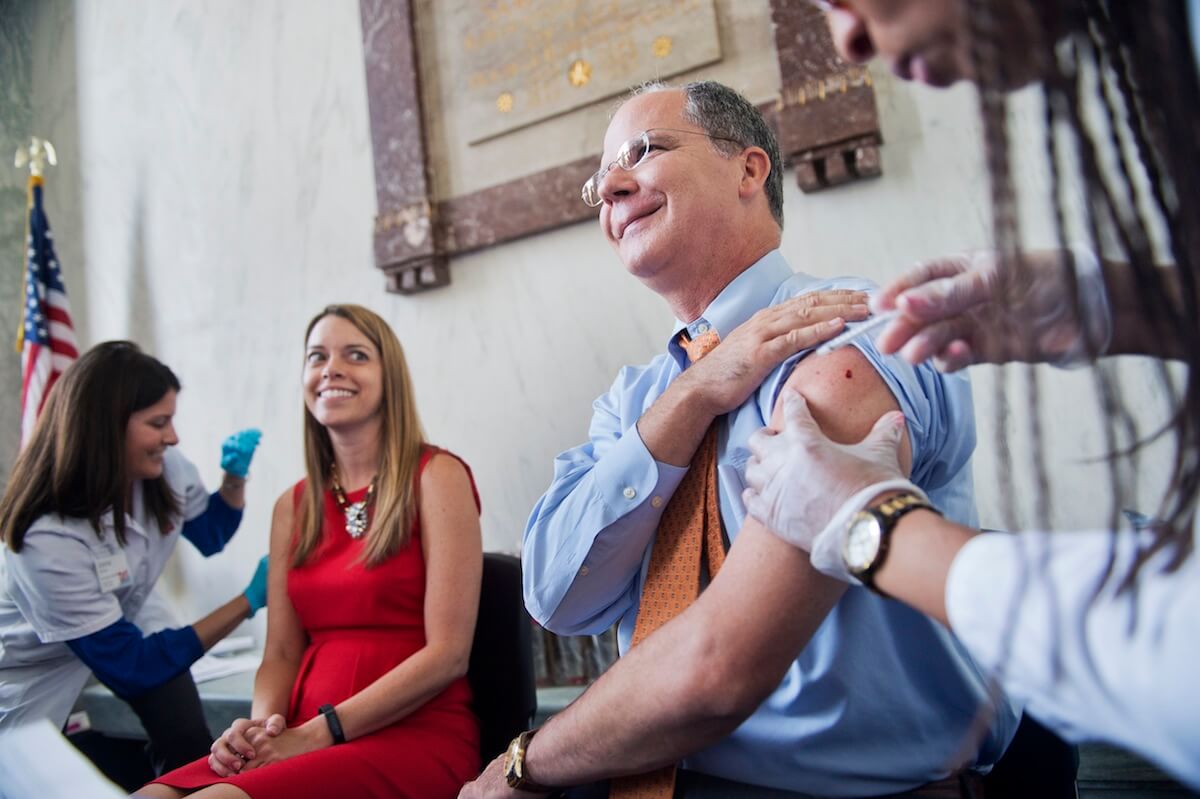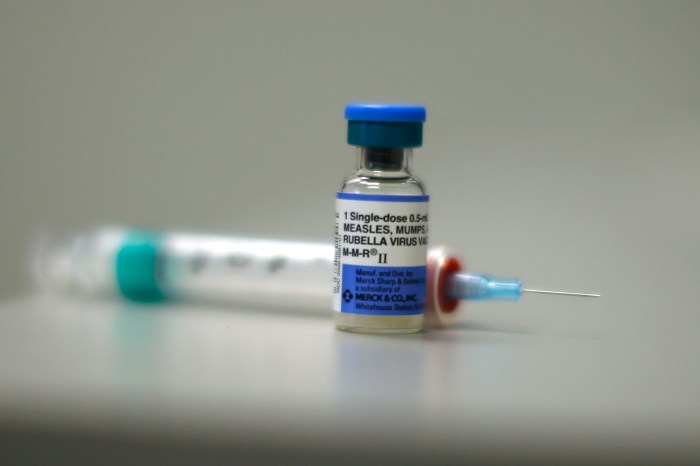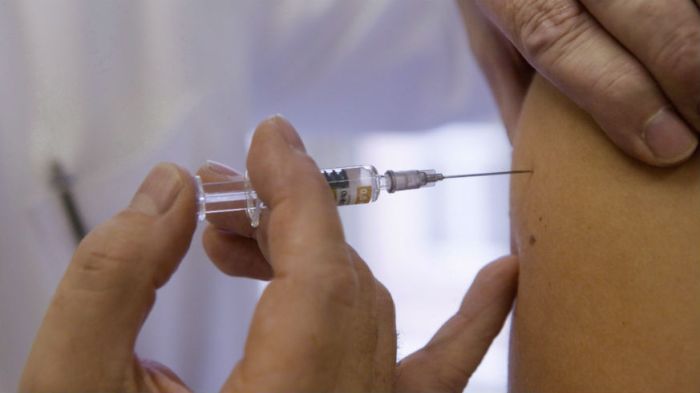The recent outbreak of measles was surprising if you know that the U.S. was declared measles-free in 2000. But with about 10 percent of Americans opting out of vaccinations because of confusion about the possible risks, health officials were not shocked. How did we get here?
Essentially, says Dr. Paul Offit of Children’s Hospital of Philadelphia, who helped invent the vaccine against rotavirus, vaccination has been too successful: “I think we’re compelled more by fear than reason, and we don’t fear these diseases because we don’t see them.”
In the 1920s, his parents saw diptheria kill scores of teenagers. Offit grew up in the ’50s and ’60s before the development of vaccines and suffered through “all the childhood diseases,” including measles. “But my children, who are 22 and 19, not only don’t see these diseases, they didn’t grow up with these diseases,” he says. “So for them, it’s a matter of faith — and faith in who? Faith in pharmaceutical companies, the federal government, the medical establishment?”
We asked Offit, who is featured in the new NOVA documentary “Vaccines – Calling the Shots” airing tonight at 9 p.m. on PBS, to dispel some common myths.
1. Vaccines and autism are linked
Offit calls this a “cautionary tale” of what can happen when people are desperate for answers. It began with a British researcher who published a biased, flawed study in 1998. Since then, tens of millions of dollars have been spent on research to disprove it. The program notes that new autism studies point to brain abnormalities detectable in the womb — meaning the disorder is genetic.
2. Mercury in preservatives poses a hazard
Thymerosal is no longer used in the typical vaccines given to kids, Offit says, with the exception of some multidose flu vaccines. The mercury in thymerosal is not the same as environmental mercury — this is another case of not knowing where the real risks lay, he says: “The most dangerous aspect of getting vaccines is driving to the office to get them.”
3.Healthy people don’t need them
Viruses don’t care how many fruits and vegetables you eat — your body won’t know how to defend itself unless it has come into contact with the specific virus before. The only way to build immunity is to get vaccinated or become infected. “So you’d prefer it to see that virus in a controlled, benign way with vaccination, rather than in an uncontrolled way.”
4.HPV vaccine makes teens promiscuous
“This doesn’t make sense on its surface,” Offit says, likening it to “the notion that if you get a tetanus vaccine, you now feel you can run across a bed of rusty nails.” A study of more than 1,200 girls found that it doesn’t increase risky sexual behavior. What it does do is offer protection from the most common types of HPV that cause genital warts and cancers.
5. Afew people opting out won’t matter
For highly infectious diseases such as measles, 95 percent of a community must be vaccinated. If the rate drops below that threshold, the “herd immunity” that protects those with the weakest immune systems is lost. Though measles was considered eradicated in the U.S., all it takes is an unvaccinated person being infected in a foreign country to bring it back.
6.The side effects can be dangerous
An allergic reaction to a vaccine is a literal one-in-a-million chance, according to the documentary. Moreover, analysis of data from the more than 35 million women who got the HPV vaccine has shown that is does not cause “mental retardation,” as Rep. Michele Bachmann claimed.
Follow Eva Kis on Twitter @thisiskis or email eva.kis@metro.us.

























